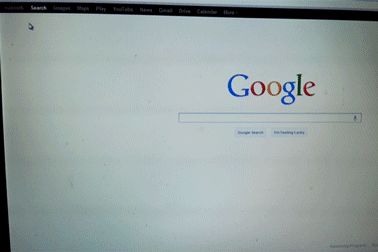Remember when writing a research paper meant hours spent in the library? Yeah, me either. In an age dominated by technology, research has come to mean reading the top results of a Google search. While noting the research potential of search engines, Penn State reference and instruction librarian Alessia Zanin-Yost said unguided Internet research can be detrimental as students often use the first source they find without questioning its validity. “When I was a student you knew the information in the library was reliable because, well, that was it,” she said. “Online information has blurred the lines between what one should use or not.”
Though you absolutely should take advantage of the Internet, you shouldn’t stop after your first Google search. “The best students realize that knowledge doesn’t exist in a vacuum,” said Penn State Distinguished Professor of History and Religious Studies Anne C. Rose. Take a look at seven ways to get the best research and impress your professor.
1. Pinpoint your Google search.

If you’re adamant about using Google, use it with finesse. The average Google search leads to hundreds of thousands results. A query about George Washington led to pages ranging form presidential history to hotel reservations. “Students are overwhelmed,” Zanin-Yost said. Sort through some of the garbage with a Google advanced search. The tool allows you to search for pages containing or lacking certain words and narrow results to region, domain, update time and reading level.
2. Verify, verify and verify.

Although overused, the cliché that “Anyone can say anything on the Internet” holds a little too much truth. You won’t get an “A” if you report that “a source” said Lady Gaga invented sliced bread. Check out the information’s origin before you quote. Make sure the author and organization are credible. University publications tend to always be great sources. Wikipedia…not so much. If you can’t easily discern an article’s origin with a quick background check, move on to the next result.
3. Utilize Google Scholar.

Google Scholar provides an excellent option for those who wish to avoid extensive verification. The engine provides links to scholarly articles on a vast range of subjects, published by universities and credible organizations. Don’t expect to always find a full article, however. Many articles are hidden behind passwords and pay walls and only an abstract is available.
4. Try your university’s databases (You’re paying for them).

Pay barriers tend to disappear when you utilize databases offered by your campus library. Schools spend millions of dollars per year on membership fees so students have access to a wide range of scholarly databases. Zanin-Yost said that Penn State offers 706 databases and 110,000 full-text journals online with subjects ranging from newspaper directories to scientific encyclopedias. Many other universities offer comparable programs. “I think that if students know how to use library resources effectively, they would not need to use a search engine,” said Zanin-Yost.
5. Take a trip to the library.

Wait, people still read books? Believe it or not, not everything can be found online. There’s a reason universities spend millions up-keeping shelves and preserving books. That old tome from 1919 might have that one long-lost fact that separates your paper from that of the poindexter that sits in the first row (he can’t win every time). “The most exciting student submissions are those where I learn something,” Rose said. Many universities offer online catalogs that allow you to reserve a book and simply pick it up at the front desk (so you can still get your Internet fix somehow.)
6. Go straight to the source

Seeking out the opinion of experts is an even better way to add color to your research project. Information tends to become livelier when it comes from a person rather than an online journal. It may seem impossible to contact one of these academic titans, but universities are loaded with innovative researchers, dying to share their discoveries. A polite email can go a long way to scoring a face-to-face interview.
7. Ask for help.

Don’t be ashamed to reach out to the campus librarians when your research hits a dead end. They are trained and paid to help you. Reaching out allows professionals to teach you new skills and resources and how to adapt them to your individual needs. “I tell students that if after 20 minutes they are not able to find what they need, then is the time to make a visit to the library,” said Zanin-Yost.



















